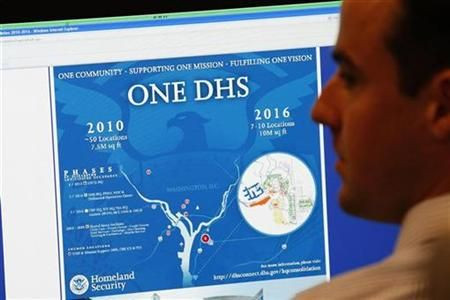DHS Shutdown What To Expect: Longer Border Lines, Long-term Terror Risks

WASHINGTON -- Congress failed to find a way to fund the Department of Homeland Security on Friday with only hours left until a shutdown. And while there is unlikely to be any immediate fallout, members of Congress warn that a long-term closure of the agency could be dangerous.
“For the weekend, probably not the end of the world,” Republican Rep. Steve Womack of Arkansas said, describing the risks for the country if the agency charged with protecting America from terrorism is shuttered. “For an extended period of time, potentially catastrophic in my opinion. And how many incidents would it take for people to say, 'That was not a very wise move and now look at this,' whatever that is, whatever this might be. That’s not a place I want to find myself trying to defend.”
Much of the agency’s operations will continue as usual because they are considered essential. Transportation Security Administration agents will remain in airports. Border patrol agents will stay at their posts. Intelligence departments will continue to function. The Coast Guard will continue to patrol. But none of those employees will be guaranteed pay until the shutdown ends. The lack of pay could affect morale. To let employees know what to expect, the department posted its shutdown contingency plan.
DHS Secretary Jeh Johnson warned that as many 30,000 nonessential employees will be furloughed for the duration of the shutdown. Those employees won’t come to work and aren’t guaranteed pay for the time they aren’t reporting to the office. In past shutdowns, Congress has voted to provide retroactive pay.
Johnson said 80 percent of the staff of the Federal Emergency Management Agency would be furloughed. Those employees could be called back to work during a shutdown only if there was a life-threatening disaster. In the meantime, their work issuing payments to those who have been affected by past disasters would come to a halt.
Some of the first people to feel the shutdown would be those who regularly cross the nation’s borders or work in the import or export business. That’s because employees who handle those functions for the Department of Homeland Security also could be furloughed. Needed paperwork may be delayed and there are likely to be longer lines at the border.
If the agency remains shut down for a long period of time or if only short-term stopgaps are used to fund the agency, it would stop the grant-making process to state and local governments. Johnson warned that fire and police departments across the country could see a halt to funds that were intended to buy new equipment.
Johnson said the staff responsible for examining reports and reviewing specific risks could be hampered by a long-term shutdown. “It must be noted that a potential shutdown of the Department comes at a particularly challenging time for homeland security,” Johnson wrote to House Democrats. “It is stunning that we must even contemplate a shutdown of the Department in the current global context. The global terrorist threat has become more decentralized and complex.”
© Copyright IBTimes 2025. All rights reserved.






















